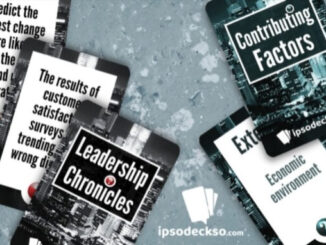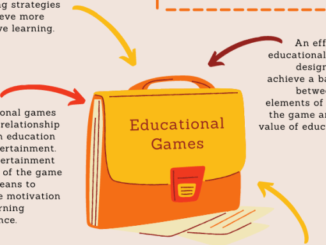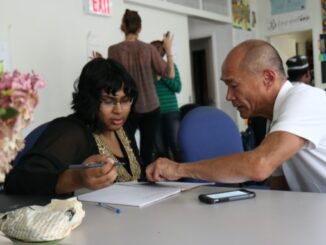
Ludogogy has entered into an agreement with Gamification Journal, based in Seoul, South Korea, for the mutual exchange of articles. This is the eighteenth of those articles we are publishing and it was in exchange for Kathy Fuller’s article – Games, Business and Changing Times.
“I am happy to play with friends”
“I am happy to play with friends.” This is what a student who didn’t reach out to other friends told me. Someone might think ‘Playing with friends is normal, so why does he/she say “happy”?’. Someone might find it to be very easy to do this, but others might not. A board game is the right tool to fill this gap.
Why board games?
First, the board game is a live education tool. One round of board game play takes between ten minutes and two or three hours. There is a flow during gameplay. In the board game ‘Tiletum’, a player becomes a merchant, contracts to trade in wool and iron, and invests in the establishment of a marketplace and construction of a large-scale cathedral. In the Korean board game ‘Wawagol Excavation Team’ which is about making your own dinosaur by assembling excavated bones, a player becomes a good fossil excavator, perfectly assembles dinosaur bones, and tries to display these. So, one round of these board games is enough to gain an immersive experience of a small sub-section of society within a short time.

Source: https://prod.danawa.com/info/
Second, board games help players to practice life skills. In the board game ‘Gem Traders’, they practice the skills of bidding at auction and negotiation, when trading gems and money. In the Korean board game ‘Cubo Saurus’, players have to consider the best choices for their card decks, from a large number of alternatives. This makes players adopt strategic approaches. Socialisation occurs naturally when players have to interact when playing together, as they gradually gain knowledge and direct and indirect experience of other players’ thoughts and actions.

Source: https://www.happybaobab.com/shop/item.php
Lastly, the board game is a mirror of the player themselves. During board game play, a hidden ‘persona’ can come out. For example, one player may be obsessed with winning, another may benefit from the experience of being in “someone else’s shoes”. In educational settings, this can be utilised by using the ‘recording method’, where scenes of participants’ playing are recorded without editing. All players can be observed, and the player reflects on himself or herself. This can aid personal development. So, board games can contribute to the internal growth of players.
The Power of Boardgames
Some people just play board games so that they can have a fun time. But a board game has a strong hidden power. Board games strengthen communication skills. During play, communication is a necessary factor. In the process of hiding or revealing the player’s thoughts and intentions, various communication skills are learned, such as summarising opinions, effectively delivering clearly and briefly, and recognizing other players’ intentions.
In addition, comprehensive thinking skills can be enhanced. One of the core competencies in the future of education is comprehensive thinking skills. People face momentous choices in life. However, if they only judge and decide using one or two factors, it will be regrettable. The more factors that are considered, the better chance they have to make the best choice.
During board game play, we analyze various factors which affect our choices. Based on this, we can practice comprehensive thinking and decision making. Through this process, the decisive capacity for life can be increased.
Third, people can experience cooperation and competition. The board game ‘Hanabi’ is a cooperative game to attain a common goal, while ‘Splendor’ is a competitive game to attain an individual goal. There is no definite ‘better option’ between cooperation and competition. We can experience both the joy of cooperation and growth through competition when we play. In this way, beautiful growth based on the success and failure of cooperation and competition can be attained.
Takeaways
There are many discussions about future talent development and education in terms of the 4th industrial revolution. Also, there is much emphasis on required competencies such as creativity, autonomy, and responsibility for the future of society. Playing various types of board game can contribute to increasing the relevant competencies for the future. At school, a board game which is attractive like this can be approached and tried in various ways. Let’s play today!
- The Power of Boardgames - 27th September 2023






Be the first to comment